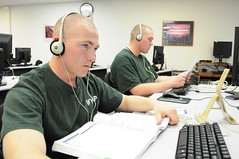Plc Programming And Process Control Course In College

by wyoguard
The course in PLC programming is educated is Process Control, a third year subject in the bachelor of Electrical Engineering. Vital background material to be specifically built upon and integrated, the background material can be placed into four categories:
Teamwork, it is material that aims specifically to develop group dynamics appropriate for problem solving. Included in this category is a first week project, a vertically integrated design and build competition that runs in lieu of formal lectures in the first week of semester 1. This includes specialist team building activities and lectures. There are also formal communications subjects. It is known that simply placing students in team does small to promote effective teamwork, and putting directed effort into developing team skills is necessary if group based problem based learning (PBL) activities are to be effective.
Theory, this case includes subjects on classical control, actuators and sensors, notebook programming and notebook systems.
Practice, this includes hands on subjects such as the lab class streams and early year design and build competitions.
Mind-set, this includes student discipline while running any project or practical.
The PLC and Process Control course gives students some experience with commercial programmable controllers, going beyond simple ladder logic and concentrating on control law implementation. Students will: know what PLC is and what it can do; know how to read sensor signals into a control system and work with the values; and know how to program and implement a simple but complete PID control system on a PLC.
The broader goal of the course is to consolidate knowledge from several areas and develop problem solving skills in the context of having to implement a control system, via:
The student active involvement in the learning process with emphasis on working in teams to solve problems.
Activities provision with clear targets or objectives.
Prompt feedback provision where the academic acts more as a guide and coach than a lecturer.
Students progress through a series of projects of increasing size, moving towards the ultimate goal of being able to implement a fully functional control system starting from scratch. The 2 hour formal meeting period typically includes roughly 15 minutes of address, directed at fastidious aspects of the weeks problem. As students have already undertaken courses in classical control, formal instruction in a programming language, although not the programming they are using with the PLCs.
There are two larger projects in the course. First, is the programming of an open loop control system for controlling an actuator and sensor. Students are given a suggested code outline as a starting top. Code blocks from each of the previous exercises can be brought to bear on the problem. The difficulty is figuring out how the complete system works for students. The second project is the programming of a working PID control system. Students start this problem with only a problem statement and they have to find suitable components to design the above system.
The other vital part is the plant integration, which are controlled by master or slave controller and allows only one PC, can access any party plant at one time. Assessment in the Process Control and PLC course is required, a significant exam component 40% of the closing grade. The closing exam concentrates on how would you questions: how would you structure this code, how would you approach this problem, etc. this is very akin to problems given during the course, with the exception of actual programming. The other 40% of the closing grade comes from the projects and is comprised of formal answers to set questions as well as demonstration of working systems and answering verbal questions from the academic.
Information in this area PLC Control
Category: College It Courses Article


Studying PLC Programming makes job security since programmers for PLC’s are always in high demand and are earning a high and steady income.